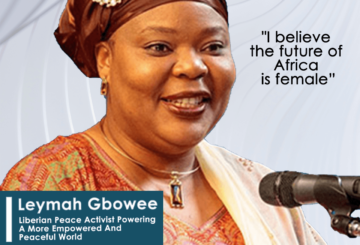A growing number of Nigerians are finding support through a critical lifeline: emergency mental health hotlines. As Nigeria marks World Mental Health Day 2024, data from the Suicide Research and Prevention Initiative (SURPIN) reveals how these hotlines are becoming an essential tool in addressing the nation’s mental health crisis.
Nigeria, with a population of over 200 million, has fewer than 150 psychiatrists. The mental health treatment gap is stark—less than 10% of those affected by mental illnesses have access to adequate care. Until recently, the use of emergency hotlines as a support mechanism was virtually non-existent. This has begun to change, thanks to SURPIN’s pioneering initiative, which has rapidly expanded across 35 of Nigeria’s 36 states since its launch in 2017.

The hotlines, originally aimed at preventing suicide, have evolved into a broader mental health service. In 2022, the system was upgraded to a toll-free number, offering round-the-clock support in Nigeria’s three major languages—Yoruba, Igbo, and Hausa—along with English and Pidgin. The new service allows for extensive call monitoring, ensuring comprehensive care.
From March 2022 to September 2023, 717 calls were logged, with 71% of callers seeking mental health support. The majority of callers were from the southern geopolitical zones, with a notable gender divide: most men called from the south, while women predominated among northern callers. The study also found that 78% of callers came from southern Nigeria, and 56% of the calls were made by men. Half of the callers were young adults between the ages of 18 and 27, and most were unmarried and unemployed.
Read more: The Things-Fall-Apart-Okonkwo Debate: Can Idris Elba Roll Fufu?
The data highlighted significant mental health challenges: over 60% of the callers reported being in a crisis, citing severe anxiety, suicidal thoughts, and violent behavior. This growing reliance on hotlines underscores the unmet mental health needs across Nigeria, especially as formal mental health services remain out of reach for many.
However, the use of hotlines was significantly lower in northern Nigeria. This disparity points to the urgent need for greater advocacy and awareness campaigns, especially in regions where cultural stigmas and lack of infrastructure deter people from seeking help. Advocates are pushing for increased education on the availability and importance of these services, particularly in underserved regions.
The success of the hotline program speaks to a broader willingness among Nigerians to seek help outside of traditional healthcare settings. Given the limited number of mental health professionals and facilities, this development offers hope. The initiative highlights how low-cost, scalable interventions can reach vulnerable populations, even in regions where mental health care has been chronically neglected.
Read more: The Independence Generation: Stories of Nigerians Born in 1960 – What it Felt Like
Looking ahead, researchers and mental health experts are calling for more studies to explore the cost-effectiveness of hotline services. Meanwhile, civil society organizations are advocating for the expansion of hotline systems to cover more states and reach even more Nigerians in crisis.





